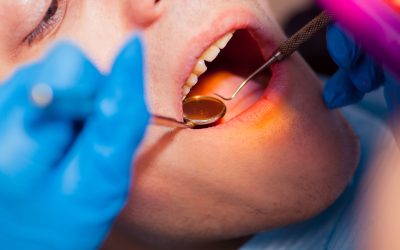Even though most people’s permanent teeth have all come in by the time they become teenagers, there are some teeth that may erupt later in life. The wisdom teeth, which are a third set, and sometimes a fourth set, of molars, will often grow in for most people in their late teens or early 20s. If your wisdom teeth have not erupted, but you are experiencing jaw pain, here are some other indications they may be coming in.
Wisdom Teeth Symptoms
In many cases, there is no room for wisdom teeth to grow in straight, and they often become impacted. An impacted tooth occurs because it is blocked from erupting, usually by another tooth. If the wisdom tooth is unable to get an open connection inside of the mouth, it can become infected and cause other dental issues. The symptoms of an impacted wisdom tooth include:
- Swollen gums
- Bleeding gums
- Tender gums
- Visible swelling around the jaw
- Pain in the jaw area
- Foul breath
- Bad taste in mouth
- Mouth is difficult to open
If you have any of these symptoms, you should consult your dentist because you may need to have a wisdom tooth extraction in St. Anthony, Champlin or Maple Grove.
Extracting the Wisdom Tooth
Even though your wisdom tooth may not be infected, you may still need a wisdom tooth extraction because it is not growing in properly. The tooth could grow in sideways, it can grow in angled backwards or it may not be able to erupt because it is trapped in the jawbone. More than likely, you will experience pain in your jaw or in your mouth if your wisdom teeth are trying to erupt and they are not growing in properly.
X-rays will be taken to help diagnose impacted wisdom teeth, and your dentist may recommend having the teeth extracted. If an extraction is necessary, your dentist may be able to do the extraction, but if not, you will be referred to an oral surgeon. The surgery can sometimes be done with just a local anesthetic, but depending on the circumstances of the tooth growth and how many are being extracted, you may be put under a general anesthetic.
During a wisdom tooth extraction, the oral surgeon will make an incision in the gum and remove any bone blocking the root of the tooth. After the bone and tooth are removed, he or she will stitch the wound and pack the empty socket with gauze. You will be prescribed pain medication to take during your recovery to help reduce pain.
You may experience some swelling of the jaw and/or the surgical site after the teeth have been removed. The after-care instructions from any three of the locations of Twin Cities Dental will help you recover from the oral surgery. For more information you can visit Website URL or their Facebook page.







